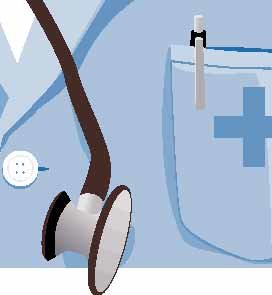
Most people are not “New Age” spiritualists or Christian Scientists who don’t believe in the use of Western medicine to treat and resolve medical problems. However, it’s amazing how close a lot of people come to holding this belief without realizing it. Often, I encounter people who oppose or question the use of pharmaceutical medication, but for the wrong reasons. They would, they claim, prefer to pursue a “natural” approach.
What exactly does a “natural” approach mean? To utilize herbs and spices to cure an infection will not be effective, but it is “natural” — so does this make it superior as a form of treatment? Many of the people who resoundingly say NO to this would, in a different context, say, “Well, I really don’t like to take medication. I want something more natural.” People who say this haven’t thought critically about what medications actually are. Pharmaceutical medications are, in fact, a rearrangement of natural chemicals (utilizing principles of chemistry and biology) to effect a desirable man-made change. To be against — or even reluctant about — medications on principle would be the equivalent of saying, in a transportation context, “I don’t want to drive over that bridge. Bridges are man-made. I want a natural approach.”
It is true that certain medications, for certain people under certain circumstances can lead to undesirable side effects. It’s of course prudent to be aware of these side-effects and weigh them before taking any medication. Also, in an exceptional case if you, for example, knew of an inexpensive herbal remedy that did the trick just as well as a more expensive, potentially more risky, prescription medication, then by all means go for it. It all depends on the facts of the specific situation. But stand back and survey the bigger picture. Prescription medications are in demand for a reason. They get the job done. Step into a time machine and go back to a world before we had penicillin or other antibiotics, to name just one obvious example. Western medicine works because it’s superior and it relies solely upon the principles of science and logic to achieve the end of health. Western medicine is no less “natural” than so-called “natural” medicine, although it’s just about always more effective.
I am often critical of using prescription medication to treat emotional problems, or when attempting to control the behavior of another. This isn’t because I view prescription medication as bad. It’s because many emotional and other problems in living are simply not medical problems, and I don’t believe that they should be treated as such. My issue isn’t with the treatment, in such cases, so much as with the diagnosis. I encourage people not to rush to the conclusion that “My unhappiness with life is a medical problem” when the evidence will most likely prove something very different, that your unhappiness is due to a combination of your thoughts, your hidden premises, and your actions over time. Medication usually isn’t needed to resolve these problems, and can absolutely never be a substitute for eliminating the root cause of such problems. None of this means that pharmaceutical drugs, or Western medicine more generally, is wrong or bad.
